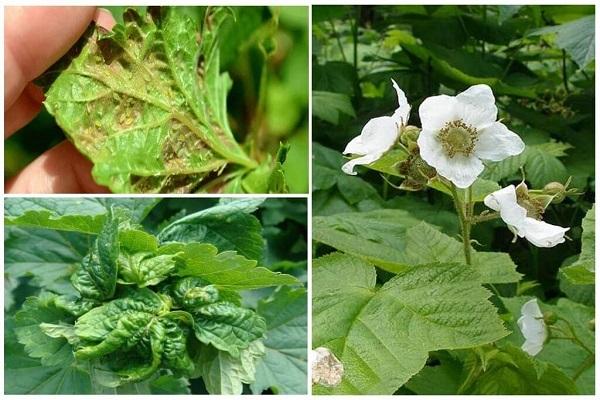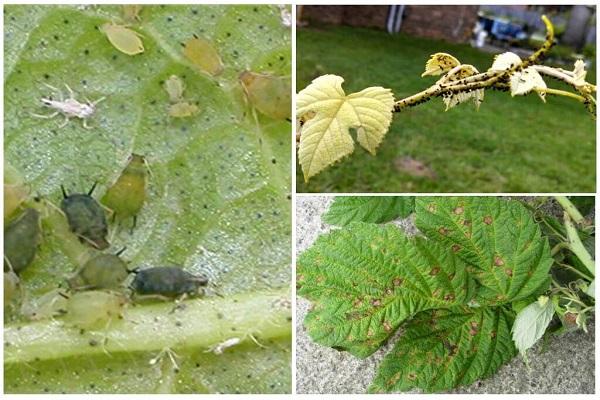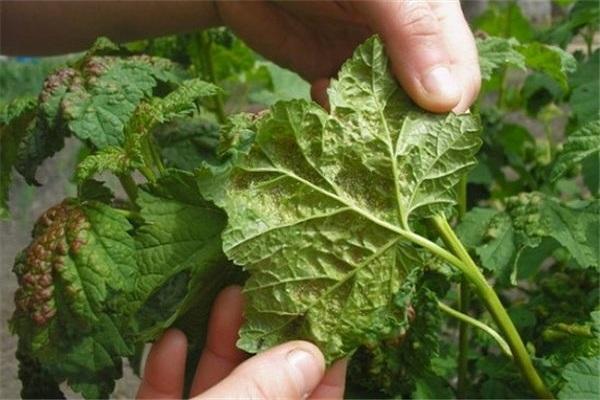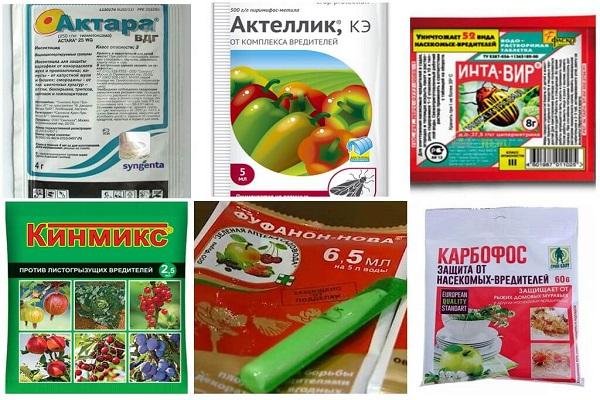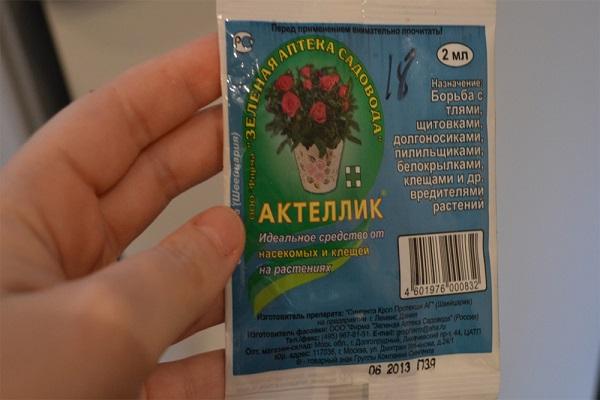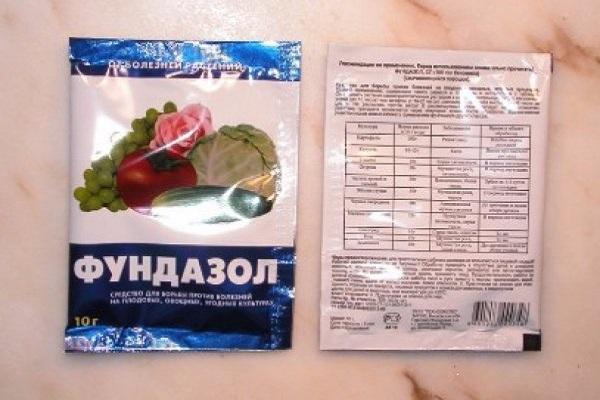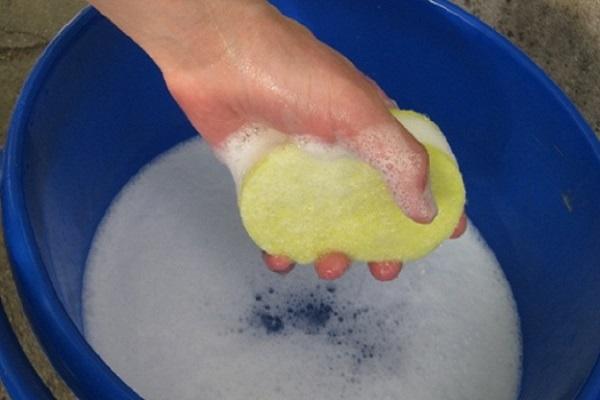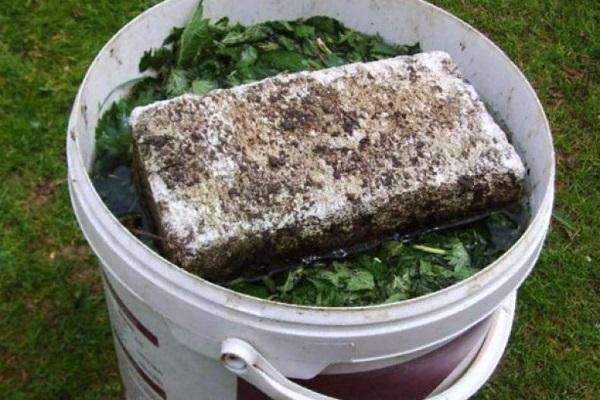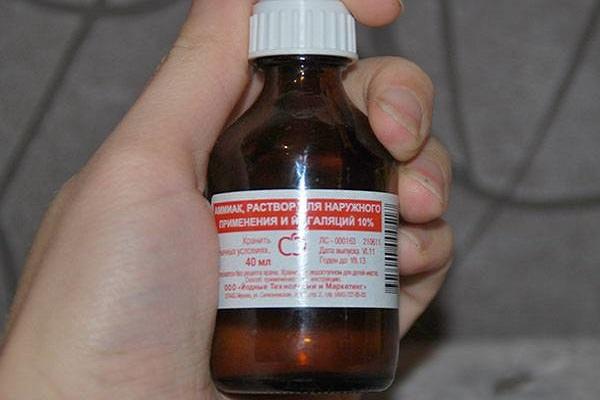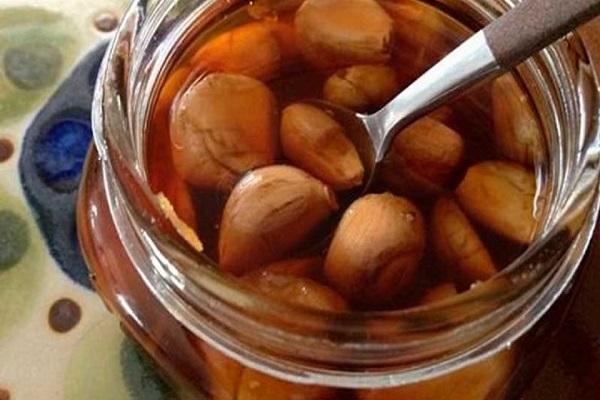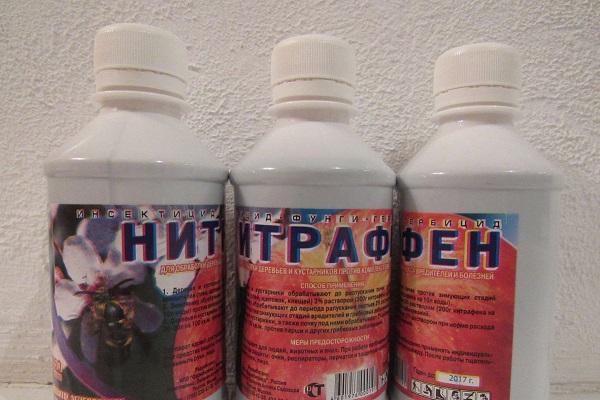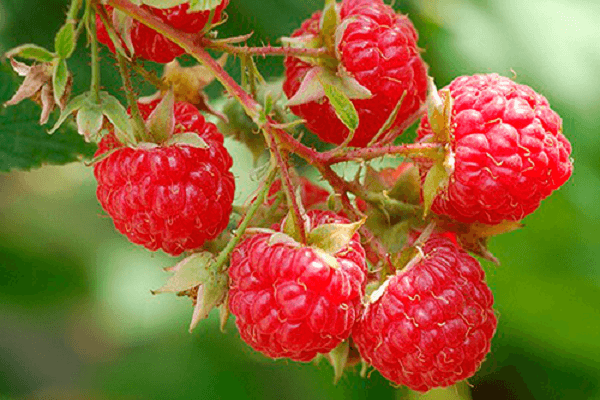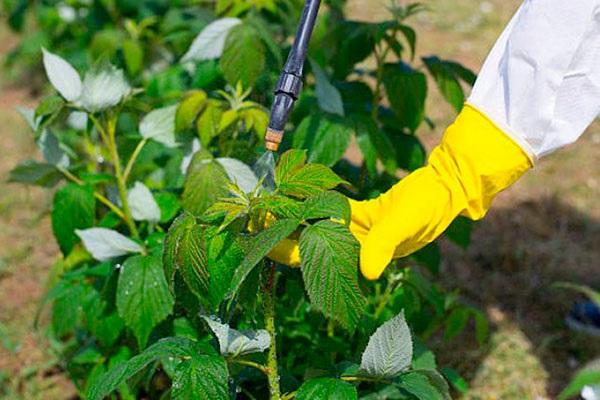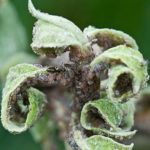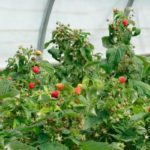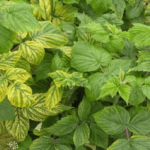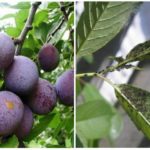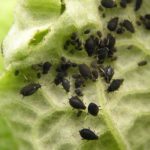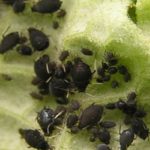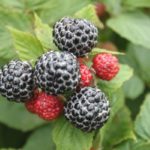When aphids appear on raspberries, many gardeners do not know how to deal with them during fruiting. After all, during such a period it is forbidden to spray shrubs with chemical insecticides. However, you are allowed to use non-toxic home remedies. Solutions for treating raspberries are prepared from simple ingredients that are available in the arsenal of any summer resident.
- Causes of pests
- Symptoms and signs of damage
- Damage to bushes
- How to treat in a greenhouse and open ground
- Chemical method
- Fungicides
- Folk remedies
- Soap solution
- Decoction of tomato or potato tops
- Tobacco infusion
- Infusion of celandine
- Chamomile decoction
- Ammonia
- Ash solution
- Onion broth
- Garlic infusion
- Hot pepper infusion
- Nuances of treating aphids on raspberries
- During the flowering period
- During fruiting
- Mistakes when fighting aphids on raspberry bushes
- Varieties that can resist aphids
- How to protect raspberries and prevent aphid invasion: methods and expert advice
Causes of pests
The main pest of raspberries is the raspberry aphid. This is a small insect with a green or yellow transparent soft body (2.55 millimeters long). There are shoot and leaf aphids. In autumn, females lay eggs, which overwinter near the buds. As soon as the buds open, aphids emerge from the eggs and settle on young leaves, feeding on their juice. Throughout the summer, several generations of aphids appear, including winged individuals.
Shoot aphids live in large colonies. Prefers to settle on the tops of stems, in inflorescences and on leaf petioles. Very active in hot weather. It feeds exclusively on plant sap, causing deformation of branches, curling of leaves, drying and falling of flowers.
Leaf aphids do not live in large colonies. One or more insects hide on the underside of the leaves and feed on their sap. True, this insect does not cause much harm to the leaves. But leaf aphids are carriers of viral diseases.
Reasons for the appearance of aphids in raspberries:
- winged individuals fly from neighboring plants;
- aphids are introduced from seedlings purchased at the market;
- multiplies due to the fact that timely pruning of bushes is not carried out;
- Preventive spraying with insecticides is not done;
- Weeds and fallen leaves near berry bushes are not removed.
Symptoms and signs of damage
In order to determine signs of the presence of aphids on a bush, you need to carefully examine it.The insect is usually found on the tops of bushes, in young leaves, inflorescences, and under raspberry leaves.
Signs of aphid activity:
- inflorescences dry out and fall off;
- leaves curl, turn yellow and fall off;
- stems and twigs dry out;
- leaves and branches become covered with a sticky coating.
During their life, aphids secrete sweet excrement, which is licked off by ants. In this way, insects take care of each other. In gratitude for the food provided, the ants protect the aphids and transfer them to succulent young shoots.
Damage to bushes
Settling on raspberries, aphids drink the juices of this plant, causing its depletion, drying of inflorescences, a decrease in the volume of green mass, curling, yellowing and falling of leaves. Over the summer, several generations of this insect manage to appear. All of them can live on the same plant, feeding on its juices and causing its gradual drying out and death.
The danger of this insect is also that it is extremely prolific. In just one season, the number of one colony increases several thousand times. Over the summer, insects are able to completely cling to a raspberry bush and drink all the juices from it. In addition, the winged relatives of aphids can move to other berry bushes and lead to their death. In addition to causing harm, aphids are a spreader of viral diseases that are dangerous to raspberries.
How to treat in a greenhouse and open ground
There are many ways to combat aphids. Chemical and simple folk remedies are used against this insect. There is another method of influencing aphids - biological. To combat insects, raspberry bushes are colonized by their natural enemies: ladybugs, lacewings, and hoverflies.Each of these insects, together with the larvae, eats several hundred aphids per day.
However, you need to take some action to attract beneficial insects to raspberry bushes. Ladybugs and lacewings flock to the smell of calendula, dill, cornflowers, dandelions, cosmos, tansy, mint, and yarrow. Hoverflies love dandelion nectar.
Chemical method
Chemicals can quickly kill aphids. However, before processing raspberries, store-bought products must be diluted with water according to the instructions. Systemic insecticides are used to control insects. The label of the chemical must indicate that it is used against aphids. The spraying solution is prepared just before the bush is processed. The chemical should only get into the area where insects accumulate.
Before flowering or immediately after picking berries, you can spray the bushes with Nitrophen solution. To do this, 200 milliliters of the drug are diluted in 10 liters of water. You can use other similar insecticides, for example, Actellik, Antitlin, Novaktion, Fufanon.
If the buds have already opened, the bushes are sprayed with a 10% solution of Karbofos. To do this, 80 milliliters of the drug are diluted in 10 liters of water. During the flowering period, it is allowed to irrigate the raspberry tree with Green Soap. Take 200 milliliters of this drug per 10 liters of water.
Shrubs are sprayed with chemicals in the evening. Preferably in calm and not rainy weather. In case of severe aphid infestation, shrubs are treated 2 times. True, you need to maintain an interval between spraying of 2 weeks.
Fungicides
In addition to insecticides, aphids can be controlled using some fungicides. Although fungicidal drugs are used only to treat fungal diseases.However, Bordeaux mixture is used not only against leaf spot, but also against aphids. It contains copper sulfate and quicklime. The powder is dissolved with water according to the instructions and the insect-infected leaves are sprayed with the solution. As a preventive measure, you can treat the bushes with Bordeaux mixture even before the buds open.
Fundazol is a fungicidal agent against fungal diseases that has insecticidal properties. This drug has a depressant effect on aphids. The product is not as toxic as chemicals. Foundationazole is used for processing bushes affected by aphids. To prepare the solution, take 5 grams of the drug and one liter of liquid.
Folk remedies
There are many simple folk remedies, thanks to which summer residents annually repel the attacks of insect pests from their garden. Plants with insecticidal properties come to the rescue. Usually, decoctions or tinctures are prepared from them and raspberry bushes are sprayed with them. It is allowed to use pharmaceutical preparations, laundry soap and even wood ash against aphids.
Usually an aqueous solution is prepared with the addition of some product, and it is sprayed on the raspberry bushes before or after the berries appear.
Soap solution
Take a bar of soap (200 grams) and rub it on a coarse grater. Then pour a liter of warm water into the soap shavings and mix well. Another 5 liters of liquid are added to the mixture. The prepared solution can be sprayed on raspberry bushes.
One bush requires no more than 300 milliliters of liquid. The leaves can be wiped with a wet sponge dipped in a soap mixture. The lower branches are dipped directly into the solution. Instead of laundry soap, you can use tar soap. Some summer residents add a spoonful of soda to the soap mixture.You can also add one glass of vegetable oil to the soap shavings solution. This composition will cover the leaves with a film and prevent aphids from feasting on the plant juice.
Decoction of tomato or potato tops
Tomato twigs and leaves can be used to make an excellent insect repellent. You need to take 2 kilograms of fresh green tops and finely chop them. Then pour 5 liters of warm water and let it brew for 3 hours. Then the pan with the tops is placed on the fire and boiled slowly for another 30 minutes. When the broth has cooled, filter it and add 20 grams of soap to stick to the leaves.
Tobacco infusion
For tobacco-based infusion, take 50 grams of dry raw materials and one liter of hot water. The tobacco is poured with boiling water and left to infuse for 48 hours. Before processing, the mixture is filtered, diluted with another two liters of water and 5 grams of grated laundry soap are added.
Only 200 milliliters of solution is consumed per bush. This treatment will help get rid of 80 percent of the insects and will prevent the formation of a new colony of aphids.
Infusion of celandine
Celandine juice is very poisonous. It is used against aphids that have settled on the leaves. Prepare a solution from the stems, leaves and flowers of celandine. The plant is finely crushed and poured with boiling water, allowed to brew for about 1 hour. For 400 grams of grass take 5 liters of water. The mixture is filtered when the water turns brown. Raspberries are sprayed with celandine infusion several times until the insects are completely removed.
Chamomile decoction
Chamomile decoction will help get rid of aphids on raspberries. To do this, you need to pour 500 grams of flowers with three liters of boiling water. Place the mixture on the fire and cook slowly for 30 minutes. Then the broth should brew for another 5 hours.Before use, the mixture is filtered and 20 grams of grated laundry soap are added.
Ammonia
To treat raspberry bushes against harmful insects, you can use ammonia. This ammonia compound is also used as an additional source of nitrogen. Aphids living on leaves are very sensitive to ammonia vapor. True, for spraying plants, a solution with ammonia is prepared. For 1 liter of water take only 5 milliliters of ammonia. It is advisable to add a little soap shavings to the solution for better adhesion to the leaves.
Ash solution
The ash remaining after burning dry branches and firewood is used against insects. It is used to make an ash or soap-ash solution against aphids. To prepare the mixture, take 300 grams of ash and pour 3 liters of boiling water. The solution is put on fire and boiled for 30 minutes. The mixture is cooled and then filtered.
For better adhesion, add 20 grams of grated laundry soap. You need to spray the bushes with this solution, wanting to get rid of the aphids that have bred on the leaves.
Onion broth
Aphids on raspberries during flowering are a problem that can be easily dealt with using ordinary onion broth. Onion peel has bactericidal properties, kills pathogenic microflora, and is used to treat and fertilize raspberries. A decoction of the husks will help cope with insects at a time when it is too late to use any chemicals.
To prepare the solution, one liter of husk is poured with 5 liters of boiling water and the mixture is placed on the stove. The broth is simmered over low heat for 30 minutes. Then let it brew for 3 days. The mixture is filtered and the bushes are sprayed with it. It is advisable to treat the raspberries twice, maintaining an interval (7 days).
Garlic infusion
You can spray raspberries against aphids with your own prepared garlic infusion.To do this, take a glass of chopped garlic and pour 5 liters of cold water. The mixture is infused for 24 hours. For better adhesion, add a little soap shavings to the infusion.
Hot pepper infusion
If white aphids appear on raspberries, how to fight them with hot pepper? It is necessary to make an infusion. To do this, you need to pour 25 grams of ground red pepper into a liter of boiling water and let the solution brew for 4 hours. When the mixture has cooled, it is filtered. Then dilute with 4 liters of water. Add a few drops of liquid soap to the mixture so that it adheres better to the raspberry leaves. This product can be used to treat bushes once every two weeks.
Nuances of treating aphids on raspberries
Raspberries are treated with chemicals against aphids in the spring. Irrigation is carried out before flowering and fruit formation. Plants are sprayed with one of these drugs: Antitlin, Kilzar, Nitrofen, Karbofos. Treatment with insecticides should be carried out in 2 stages. The bushes are sprayed with a chemical twice to finally get rid of eggs and adults.
During the flowering period
When the raspberries bloom, it is not advisable to treat the bushes with chemicals. Insecticides can burn the plant's flowers and kill beneficial insects. At the time of flowering, it is advisable to use herbal decoctions or homemade tinctures against aphids.
During fruiting
Raspberries are processed with extreme caution during the fruiting period. When red raspberries appear on the bush, treatment with chemicals and fungicides must be completely avoided. It is not recommended to spray plants even with homemade decoctions of insecticidal herbs.You can prepare a soap or ammonia solution and carefully, with a small washcloth, wash each leaf on which an aphid colony has settled.
Mistakes when fighting aphids on raspberry bushes
Novice gardeners make a number of mistakes, wanting to quickly destroy aphids. For example, they buy fungicides and use them to fight insects. Some fungicides help control aphids, but insecticides must be used against insects. And exclusively systemic action. Intestinal-spectrum chemicals against aphids are not used.
There is another mistake that is made when processing bushes: spraying is carried out in rainy weather. Chemicals are immediately washed off by rain and have no effect on raspberries.
It is also important to remember that all insect control products must be diluted with water in the correct proportions.
Varieties that can resist aphids
Aphids feel great on smooth young raspberry leaves. However, it cannot attach to densely pubescent leaves. There are raspberry varieties that are immune to the raspberry aphid. For example, Tarusa, Lilac Fog, Aborigine, Beauty of Russia, Stolichnaya, Moroseyka. With proper care and timely pruning, these crops are almost not attacked by insect pests.
How to protect raspberries and prevent aphid invasion: methods and expert advice
Experienced summer residents try to prevent aphid infestations, and to do this they use simple methods of protection. For example, branches are pruned annually not only on raspberries, but also on other berry bushes. They remove fallen leaves, destroy weeds, and keep the garden clean. Crops are planted near the raspberry field that repel aphids with their smell: onions, garlic, tomatoes, potatoes.
To destroy aphids, they attract beneficial insects: ladybugs, hoverflies, and lacewings. Feeders are installed on bushes for sparrows, robins, titmice and other birds that love to eat aphids.

